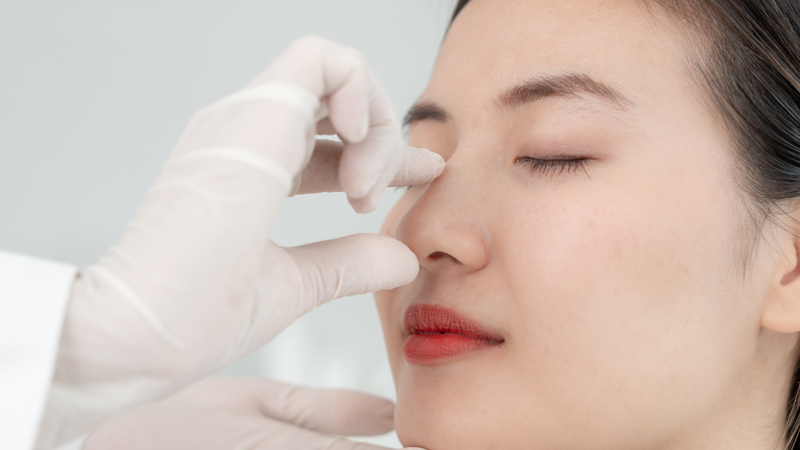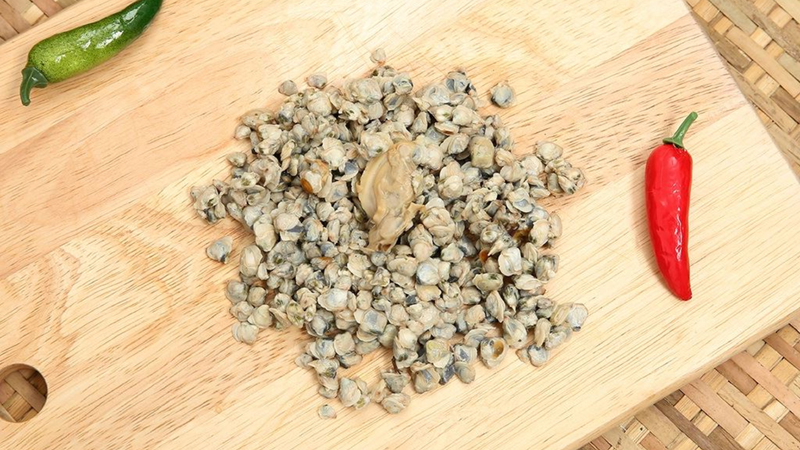Diet plays an important role in the recovery process after rhinoplasty. Choosing the right seafood will help the wound heal quickly and minimize complications. So, can you eat mussels after rhinoplasty? What foods should you avoid after rhinoplasty?
Rhinoplasty is one of the popular cosmetic procedures, helping to improve the shape of the nose and enhance facial aesthetics. However, to ensure a smooth recovery process after surgery, diet plays an equally important role. Many people wonder if they can eat mussels after rhinoplasty and what foods should they avoid to avoid affecting the wound?
Can you eat mussels after rhinoplasty?
After rhinoplasty, eating mussels is not recommended, at least in the early stages after surgery. Here are some specific reasons:
Risk of infection
Mussels can contain bacteria, viruses and infectious agents. Therefore, consuming mussels can increase the risk of wound infection, leading to pus or severe infection. The nasal area after surgery is still very sensitive, so it is necessary to avoid foods with a high risk of infection.

Is it okay to eat mussels after a nose job? This is a question many people have.
Skin irritation
Mussels are cold and have a fishy smell, which can irritate the skin around the nose. Eating mussels can cause the surgical area to become red, swollen, itchy or uncomfortable. This can slow down the recovery process and affect the final results of the surgery.
Leads to scar formation
Mussels contain a lot of protein, which can stimulate excessive skin regeneration, leading to the formation of keloid scars – an unwanted complication for people with rhinoplasty. Keloid scars can reduce the aesthetics of the nose after surgery.
Toxins in mussels
In addition, mussels can also contain heavy metals such as lead and mercury, especially if the source is unclear or not processed carefully. Consuming foods containing heavy metals can cause poisoning, affecting your overall health, as well as your recovery process.

Eating mussels right after rhinoplasty can affect the recovery process.
How long after rhinoplasty can you eat mussels?
Can you eat mussels after rhinoplasty? You need to abstain from eating mussels after rhinoplasty. The time to abstain from eating mussels after rhinoplasty depends on each person’s physical condition and recovery process. However, there are some reference time frames that you can consider:
- Short period after surgery (1 – 2 weeks): This is the time when the nose is most swollen and sensitive. You should completely avoid eating mussels during this period, because the risk of infection and irritation is very high. Chewing foods such as mussels, which require a lot of pressure on the mouth and nose, can affect the recovery process.
- Average recovery period (2 – 4 weeks): After about 2 – 4 weeks, the swelling of the nose will decrease, however, eating mussels still needs to be careful and you should consult your doctor. Each person has a different constitution, so only when the nose has recovered well and the doctor has confirmed, can you gradually eat foods like mussels again.
- Depending on the constitution: For people with sensitive constitutions or easily irritated skin, the time to abstain from eating mussels may be longer. Eating mussels too early can cause itching or slow down the process of new skin growth. Therefore, listen to your body and follow the instructions of your surgeon to make the best decision.

The time to abstain from eating mussels after rhinoplasty depends on your physical condition.
What foods should you avoid after rhinoplasty?
In addition to mussels, there are many other foods and eating habits that you should avoid after rhinoplasty surgery. So what foods should you avoid after rhinoplasty? Here are some things to keep in mind:
- Foods that are difficult to chew: Avoid eating hard foods or foods that require a lot of chewing, such as hard meats, crispy bread, or chewing gum. Chewing can put pressure on the nose area, affecting the surgical wound and the recovery process.
- Foods with sharp edges: Fish with bones, clams, scallops, or foods with sharp edges should also be avoided, as they can accidentally injure the surgical area when eaten.
- Stimulating foods: Limit your consumption of coffee, tea, carbonated drinks, alcohol, and spicy foods, as they can irritate the wound, increasing swelling and discomfort in the nose area.
- Foods high in salt: Salt can increase water retention in the body, causing more swelling in the nose after surgery. Therefore, reduce the amount of salt in your daily diet to help reduce swelling and soothe the surgical area.
- Foods high in sugar: Sugar can increase the risk of infection and affect the immune system. After rhinoplasty, limit eating cakes and sugary drinks to help the body recover faster.
- Smoking: Cigarettes contain many inflammatory substances and slow down the skin regeneration process. If you are a smoker, stop smoking at least in the early period after surgery to avoid unwanted complications.

Alcoholic beverages should be limited after rhinoplasty.
After rhinoplasty, proper care and abstinence from certain foods are extremely important to ensure the best surgical results. So can you eat mussels after rhinoplasty? Mussels are one of the foods to avoid in the early stages due to the risk of infection, irritation and affecting the wound healing process. In addition, you should also pay attention to abstaining from other foods such as hard foods, stimulating foods and foods high in salt and sugar. Always follow your doctor’s instructions and monitor your body for a safe and effective recovery process.





